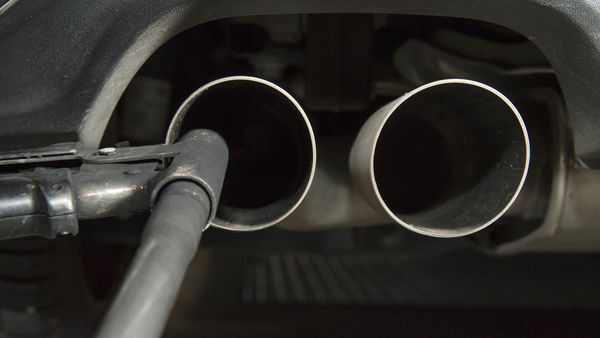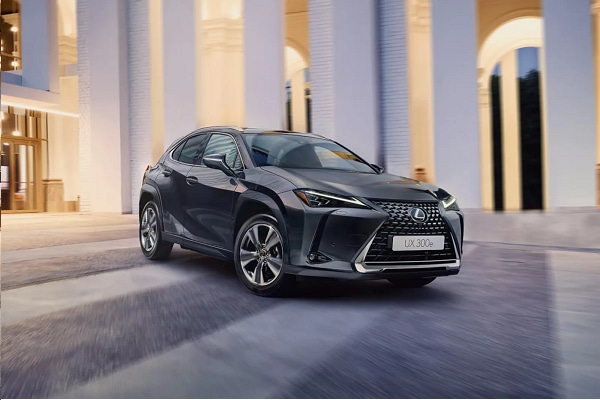Gasoline car bans show why market forces aren't always enough
_1605699351443_1605699357166_1606827187591.jpg)
_1605699351443_1605699357166_1606827187591.jpg)
It’s been a strangeyear, so you’d be forgiven for missing an odd thing that happened in the UK last month. When Prime Minister Boris Johnson, leader of the Conservative Party, bannedsales of new internal combustion engine cars from 2030, the decision was supported bythe likes of oil giant Royal Dutch Shell Plc and the Confederation of British Industry, a powerful business group.
How did these champions of market-driven policies and fewer regulations become promoters of such a heavy-handed intervention?
Perhaps the ban issimply something any competent government, regardless of its political bent, should be doing. The UK has a legally mandated goal to reach net-zero emissions by 2050. Thatmeans quickly cutting emissions from all sectors, including transport. Last year, the government’s independent advisor, the Climate Change Committee, recommended the 2030 ban as a way of meeting the UK’s climate targets. Maybe Johnson just accepted the wise advice.
Also check these Cars
But there’s likely a deeper reason, too. “As long as established sources work well, are readily available, and are profitable, their substitutes, even those with clearly superior attributes, will advance only slowly," writes Vaclav Smil, one of the world’s foremost scholars on the energy transition (and one of Bill Gates’s favorite authors).
Also Read : Here's where India stands as world gets ready to shun petrol and diesel vehicles
Electric vehicles (EVs) are superior to their ICE cousins. They’requieter, more powerful and more comfortable. They don’t clog up the air with tailpipe emissions, and they are vastly more energy efficient. For many people, such as those withdaily long-distance commutes, an EV’s lifetime cost includingupfront purchase price and fuel spend is already lowerthan ICE cars. The CCC showed that the UK banning ICE car sales 10 years earlier than it previously plannedwould save Britons more money sooner.


And, yet, their uptake remains low in most countries around the world. Unfortunately, deciding whether to adopt a new technology often isn’t just about its pros and cons. People tend to prefer the devil they know, and they need motivation to overcome the inertia to change.
Inhis book Energy and Civilization: A History, Smil shows that throughout the European industrial revolution, draft animals andwater mills co-existed with steam engines, even though engines were far superior. In the wood-rich US, coal surpassed wood as a fuel source only in the 1880s, whereas the UK had made that transition in the 1620s. It took until the 1920s for mechanical power to overtake horses and mules in farming, and the US Department of Agriculture only stopped counting “working animals" in 1963.
Also Read : China to give fossil-fuel cars more time while promoting electric vehicles
In that context, this comment fromShell’s UK Country Chair Sinead Lynch makes complete sense. “The technology is ready… infrastructure is growing, but the speed of the transition needs to accelerate over the next decade," she wrotein a July LinkedInpost calling on the government to set a 2030 ban. Shell is eager for the shift to happen. It’s bought autility company that can provide renewable energy, acquired a startup that builds EV charging stations and set a target to reach net-zero emissions by 2050.
Projections show just how much more effective the ban is likely to be than waiting for consumers to come around. BloombergNEF’s transport team estimates that, without the ban or other incentives, EVs would make up 42% of UK’s car market in 2030 and 56% in 2035. Cars in the UK typically last 14years, according to Society of Motor Manufacturers and Traders,and thussimply relying on market forces would mean the country blowspast its climate goal. It’s also why 13 other countries have set similar targets, with Norway’s ban on new fossil fuel cars coming as soon as 2025.
Put another way, the UK has left incentivizing clean transport so late that only a ban on ICE car sales may now provide the push needed. Johnson’s move is certainly a heavy-handed intervention, but at least it’s not going against the tide of technology and economics. It’spushing the transition to go faster in the direction that market forces were already heading.
Akshat Rathi writes the Net Zero newsletter, which examines the world’s race to cut emissions through the lens of business, science, and technology. You canemail himwith feedback.








 40 kWh
40 kWh 150 Km
150 Km



 998 cc
998 cc Petrol
Petrol











